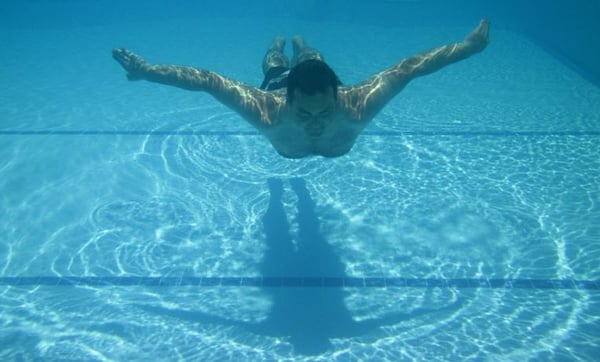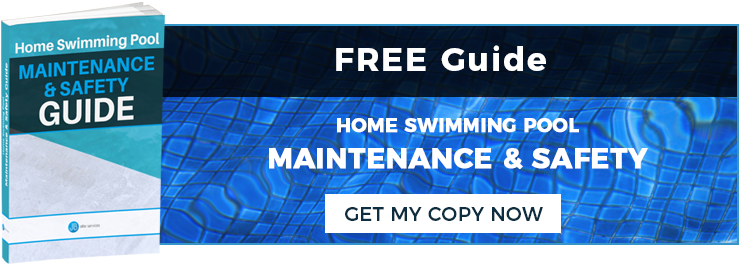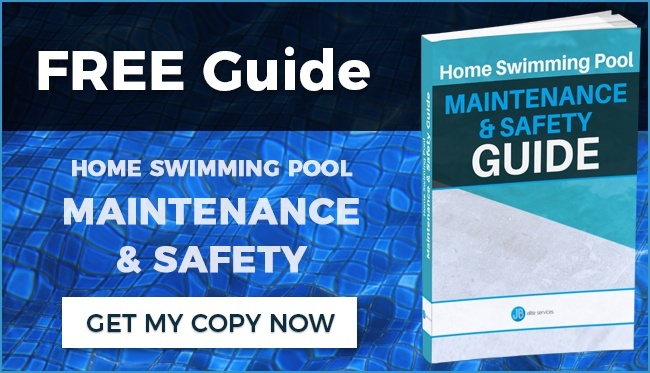
The water in your swimming pool probably comes from the mains supply, the same source as our drinking water. But once your pool is filled, it immediately becomes subject to whatever dust and debris is floating about in the air and sitting in the water lines even before the first bather gets in for a dip. Keeping pool water safe and fit for use is a constant duty of care throughout the summer months. Knowing what chemicals are required to achieve that is important, but also appreciating just why they are needed provides valuable context and understanding.
What Potential Problems Does Untreated Swimming Pool Water Pose?
There is the obvious health risk from build-up of bacteria and pathogens, and water can quickly become smelly and unpleasant if left untreated for days during a hot summer.
- Bacterial build-up of strains such as E Coli and Salmonella cause illness when swallowed
- Algae is a nuisance that causes ugly discolouration and can bloom on a hot summer day
- Scale can build up on the walls and on fittings, and is difficult to remove once in place
Background To Causes Of Swimming Pool Contamination
The most immediate cause of contamination is the dirt on human bodies that gets washed off within the first minute after a bather enters the pool and which consumes a good deal of the chlorine, leaving less to combat other threats. That’s why some public pools request bathers to take a quick shower before jumping in the pool.
Peeing in the pool, knowingly or otherwise, is the most common source of contamination. Urea in urine reacts with chlorine to form that distinctive smell you find in enclosed public pools. Next up is sweat, which is simply a natural by-product of exercise in any case.
What Various Pool Chemicals Do
Disinfectant – chlorine based chemicals are the most well-known but some people prefer alternatives such as a bromine, ultraviolet radiation or even just salt based options.
Phosphate neutraliser and algaecides – it’s the phosphates and nitrates in the water that provide nutrition for algae, which can form a bloom in hot weather. Remove the phosphates and the problem goes away. The trouble is there are so many sources of phosphates - from leaves and dirt to run-off from garden fertilizer and even some cleaning products – that it’s a never ending battle, and keeping your pool covered when not in use is the first step.
Pool shock – chlorine that is “used up” after combining with bacteria is combined chlorine and must be removed. Shocking means dramatically raising the chlorine level for a brief period so that the combined chlorine is consumed.
Limescale – which is calcium scale, starts off as white foam but quickly forms a hard coating on pool equipment and along the surface edges. A stiff brush is needed to remove it. In extreme case, muriatic acid may be required but needs very careful handling.
What Else Can I Do To Keep My Swimming Pool Clean?
One simple task is to make sure the water circulates for sufficiently every day during the swimming season. Stagnant water promotes the build-up of all manner of unpleasant things, not least algae. Some other things you can do are:
- It may seem obvious but frequent regular skimming, vacuuming and cleaning is a critical task. Never allow any form of visible debris to float on, or to sit at the bottom of the pool. Remove it immediately. Also frequently clean the skimmer and pump strainer baskets.
- Tell children not to pee in the pool. They may choose to do so anyway but they most definitely will if you don’t tell them not to.
Find Out More
Handy advice about home pool maintenance, including the safe use of chemicals, can be found in the Home Swimming Pool Safety & Maintenance Guide. Click here to claim your copy.









